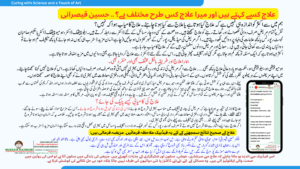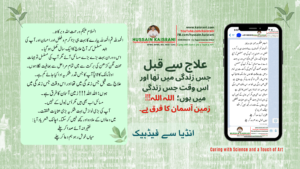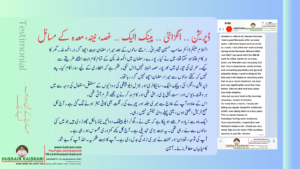Aurum is a syphilitic remedy. It is one of the heavy metals of the 6th period. In Aurum the feeling is that the person must perform tasks which are impossible or much beyond his capacity. He demands of himself industry and responsibility, conscientiousness and duty of the highest degree, uncompromising principles or goals that are beyond the possible.
He almost destroys himself in trying to achieve these goals, because if he does not achieve them, he gets the feeling of failure, guilt and despair of salvation. It is as if his very survival depended on his ability to take on these huge responsibilities. He is afraid of losing the confidence of others and of himself. He has a feeling that he may fall down from this high position.
This can make him suicidal. When Aurum gets suicidal thoughts, he does not have to fight with himself as Natrum sulphuricum does. Aurum will make a decision and act. He asks himself: “Do I jump or not?”; if the answer is: “I jump”, he just jumps.
Aurum people are highly moralistic, principled and orthodox. However, sometimes it can work the other way round, i.e. finding the task too high; Aurum becomes then irresponsible and immoral. Aurum therefore, has the polarity between high morality and extreme guilt and suicidal tendencies. He alternates between “I am highly moral” and “I am highly immoral and have sinned away the day of grace”.
They are usually relieved tremendously by music. One of my early observations was that Aurum patients like to hear Bhajans. Bhajans are Indian religious songs, which are sung with exact meter and with a lot of devotion. The three components:
– Religiousness.
– Music ameliorates.
– Exactness.
are found in combination only in Aurum, and Aurum persons are almost the only people I have found to be markedly ameliorated from hearing Bhajans.
I was told by a musician that Tansen had composed Raga Darbari at the request of the Emperor Akbar, who wanted a raga to alleviate the feeling of tremendous responsibility he faced and the despair it brought about in him at the end of the day. The raga has tremendous depth, a feeling of great responsibility and hopelessness, which comes very close to Aurum.
The situational Materia Medica of Aurum is a situation in which his survival is dependent on his fulfilling his duty. Aurum is the eldest child of the family and his father is no more. Society will blame him if he does not take charge of his siblings. He raises the family. He is the duty-bound son, his views are very moral and conscientious. Aurum is concerned about how he appears to himself; he always checks whether he has done things right since his survival depends on this, and not on how he appears to other people as is the case with Silicea. Aurum is also very adamant about principles. His value systems are very strict and he imposes the same values on others; this is described by the rubric: “Dictatorial”. He is intolerant of contradiction.
The first thing you will notice in an Aurum patient is that he is neat in appearance, conservatively dressed in an old fashion, sometimes with a religious mark on his forehead. He is punctual in his appointments. His case form is very neatly and completely filled in. He brings all his medical reports filed in sequence. On going through these records we find that he has been checking up on his health very regularly. He has taken the medicines scrupulously, not missing out a single dose. He describes his ailments correctly, date-wise and talks confidently, not too much and not too little. In his work he is very meticulous, careful about even the smallest of things; he is a perfectionist, will work late, check the last file, count the last penny. He is duty conscious and will never rest until he has completed the day’s work. He is very much trusted and valued by his employer and colleagues, since he is extremely hard-working, highly responsible and honest. He does not seek money, power or fame. He is happy to have done his duty. He values appreciation, but that is not the aim of his work.
He has a strong sense of right or wrong, and the wrong doings of others provoke his anger. He is thus critical and sets very high standards for himself, as well as others. He will be very punctual and will expect you to be punctual too. If you delay him in your waiting room, he may burst in and demand that you keep the time. He can be quarrelsome and reproachful.
Aurum patients have a fixed idea about what their duties are, this generally depends on what they have been taught by their parents. An Aurum person may have been taught that, after he has fulfilled his responsibilities towards his family, he should turn to religion or social service; so having educated and married his children, he devotes his time to religion or helping others. He does this more from a sense of duty than from sympathy or anxiety for others.
Aurum can develop a very strong attachment to another person, often one much younger than himself. I have seen such a parent-child relationship develop with a person of the opposite sex, or it could be with his own child. The attachment is so strong that he must see the other person everyday, hear that person’s voice, etc. The affection goes hand in hand with expecting the other person to obey and to act according to his wishes. Such relationships probably represent the Aurum need to be a parent to someone. It is when the other person rebels, in other words, refuses to be parented anymore, that Aurum becomes heart-broken. He experiences mortification, anger with indignation, tremendous depression, sadness, forsaken feeling, disappointment and he feels that life is not worth living any more. He can become suicidal at this stage. He totally withdraws and becomes highly irritable.
He often talks and answers in questions. He is easily disappointed with others just as with himself.
Physically Aurum persons tend to develop serious chronic problems such as hypertension, heart
disease, destructive pathologies and cancer.
I have observed that many Aurum patients have a knobby nose tip and have fear of high places.
Phatak
– Delusion, reproach, has neglected his duty and deserves.
– Anxiety, conscience of, as if guilty of a crime.
– Reproaches himself.
– Delusion, affection of friends, has lost.
– Confidence, want of self, others have none, which makes her unhappy, and thinks.
– Anxiety, salvation about.
– Delusion, succeed, he cannot, does everything wrong.
– Industrious.
– Loathing life.
– Suicidal disposition, throwing himself from a height.
– Religious affections.
– Music ameliorates.
– Questions, speaks continuously, in.
– Conscientious, trifles about.
Clarke
– Increased scruples of conscience.
Kent
– Knobby tip of the nose.





